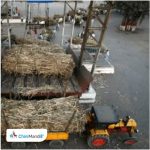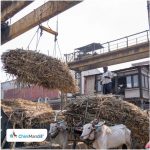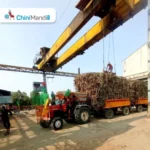Nagpur: Union minister for road transport and highways Nitin Gadkari on Friday said that large-scale production of sugar and ethanol by major factories in Brazil has created a global glut, which has directly affected India’s sugar industry. He said the cost of producing sugar in India has now gone beyond the sale price, pushing many factories into heavy losses, reports The Times of India.
Gadkari said the situation has hit his own cooperative units as well. He noted that four sugar plants run in Vidarbha are losing nearly ₹40 crore every year. He added that entering the sugar sector was not a wise decision but the units continue to operate for the welfare of farmers in the region.
Speaking at the inauguration of the 16th Agrovision Expo, a farmers’ event he leads, Gadkari remarked in lighter vein that heading a sugar factory can severely damage a political career, and that anyone burdened with the role must have carried some misdeeds from a previous life.
Later, speaking to TOI, he explained that several structural issues affect the viability of sugar factories. In Brazil, large mechanised units operate across thousands of acres, resulting in excess sugar and ethanol and lower production costs. He said production cost in Brazil is around ₹24 per kg, while in India it reaches nearly ₹32 per kg, even as current market prices remain below this level.
He pointed out that while the price paid to sugarcane farmers keeps rising, the selling price of sugar has stayed unchanged. The government has fixed the maximum sale price at ₹32 per kg.
Gadkari said factories must pay farmers within 15 days and are required to sell sugar in monthly quantities equal to 10% of their stock throughout the year. Only factories without debt or those running at full capacity are able to cope.
He noted that recovery rates also vary across regions. Western Maharashtra sees a 12% recovery, Kolhapur achieves around 13%, while Vidarbha remains at about 11%. A drop of one percent in recovery leads to a loss of nearly ₹7 crore, he said.
Despite the challenges, Gadkari said the units continue to operate for the development of the region. He said each factory supports the livelihoods of nearly 25,000 people, and they have recently taken over the operations of the Vasant Sugar Factory as well.

















